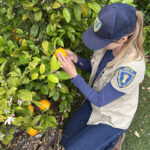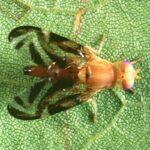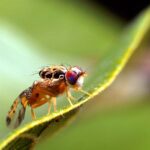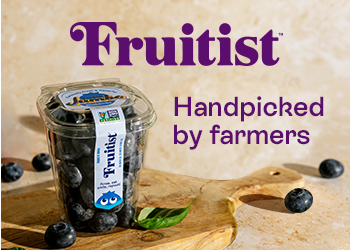Millions of sterile fruit flies released in Croatian citrus orchards

Batches of sterilized male Mediterranean fruit flies have been released onto Croatian citrus orchards in a bid to reduce the pest populations causing major problems for the sector. 
The flies were sent over by Israeli company BioBee, which specializes in insect sterilization technique (IST) and is partnering with orchards in the Balkan country located close to the border with Bosnia-Herzegovina.
BioBee operations manager Ofir Levy spoke with www.freshfruitportal.com about how the technique would help reduce fruit fly population over the coming years.
"In the Croatian mandarin orchards we have a project where we sent over approximately 380 million fruit flies over a course of time," Levy said.
"We shipped over the pupa and they have a facility over there where they can emerge the flies before releasing them into fields and orchards. So far, we believe the project is working extremely well and is helping to reduce the population.
"These Croatian orchards had a big problem with the pests which were damaging citrus crops and preventing fruit from being sold commercially which is obviously very bad for everyone."
The flies were produced by BioBee in Israel and then exposed to a radiation process that makes them sterile.
"The Mediterranean fruit fly causes damage to fruit mainly in citrus around the world but there are around 250 different kinds of fruit and vegetables that this fruit fly attacks and we specialize in sterile insect technique," Levy said.
"We use the pest against itself. We produce a specific strain of the male fly and at some stage of the production we get rid of all the females so we work only with males.
"These males are irradiated for sterilization and eventually released into fields and orchards where they mate with the female population, but since they are sterilized the females do penetrate the fruit but the eggs are not fertilized.
"Eventually, and it can take a lot of time, there are no next generations and by releasing huge numbers of sterilized males over the course of time we manage to decrease the population of the pest."
Improvement over time
Apart from reducing fruit fly population, the whole idea of using the IST is to ensure crops are protected and can produce commercial-sized yields viable for sale and export.
In this case, BioBee will continue to work with Croatian orchards to keep the pest population under control and help stabilize citrus yields next year and beyond.
"[Croatia] had a very bad problem with fruit fly infection and they had to stop exporting to the Russian market, for example, a few years ago and this is not good news for producers and exporters," Levy said.
"The project in Croatia will probably go on for the next few years.
"You cannot get rid of the fruit flies 100%, but there will definitely be a reduction in the population which will save the fruit from huge damage so it can be commercialized once again."
Photo: BioBee











































